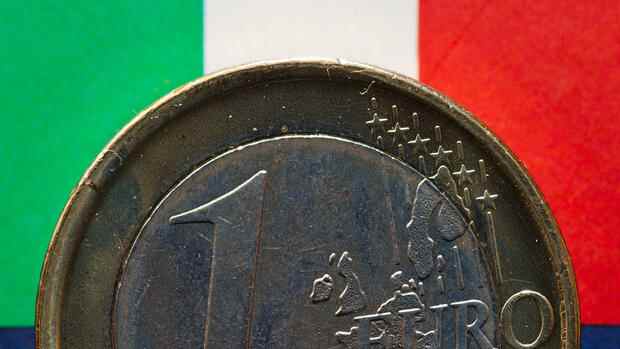Debt kings: The ECB pumped 17 billion euros into the Italian, Spanish and Greek markets in June and July.
(Photo: dpa)
“If people understood the monetary system, we would have a revolution before tomorrow morning,” automotive pioneer Henry Ford is reported to have said. A few years ago, a survey of British MPs found that 85 percent think money is created solely by the state. One can confidently assume that things are no better for our MEPs. If political actors don’t understand our monetary system, you can’t expect them to make the right decisions.
In truth, the private banking system accounts for a good 90 percent of money creation. Every new loan from a bank leads to an increase in the money supply. Government matters only insofar as additional government debt also results in additional money when central banks buy the additional bonds.
The latter is of particular importance in a currency union such as the euro zone: if a country has more debt than other member countries, more money is created there that can be used anywhere in the currency area without any exchange rate risk. The use of the new money accrues in the country concerned, the possible damage caused by the expansion of the money supply is socialized.
ECB is enforcing a debt union through the back door
On top of that. If the central bank of this currency union also feels obliged to limit possible interest rate differences between the member states, the corrective of the market, which slows down the disproportionate increase in debt, is missing. States that operate more solidly are then not only in a worse position with regard to the expansion of the money supply, but are also liable for the purchased debt through their share in the central bank.
Top jobs of the day
Find the best jobs now and
be notified by email.
Specifically, in June and July, given the political turmoil in Italy and in clear contradiction to the self-postulated criteria for such an intervention, the ECB pumped 17 billion euros into the Italian, Spanish and Greek markets, while its portfolio of German, Dutch and French debt instruments fell by 18 billion euros.
Daniel Stelter is the founder of the discussion forum beyond the obvious, which specializes in strategy and macroeconomics, as well as a management consultant and author. Every Sunday his podcast goes online at www.think-bto.com.
(Photo: Robert Recker/ Berlin)
>> Also read here: These are the poorest countries in the EU
The purchase of Italian bonds alone accounted for 10 billion. If the ECB continues down this path – and there is every indication that it does so – it forces a debt union through the back door, since it is impossible ever to sell the bonds it has bought, as this would immediately result in an increase in relative interest rates.
The winners of this policy are states that rely on higher debts. They benefit from the new money, are supported by the central bank and gain ever greater leverage to push through a debt and transfer union. In this environment, anyone who allows tax increases through cold progression, even calls for tax increases and does not also rely on debt policy, has not understood how this monetary union works.
More: Commentary – The ECB is getting even more political – this is dangerous
